Endorser organizations
These organizations endorse the Open Source AI Definition.
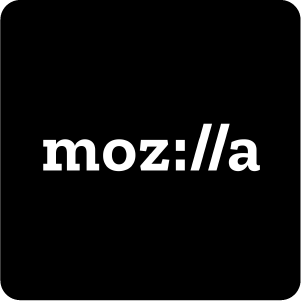
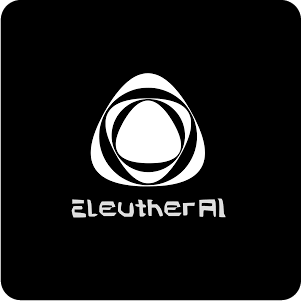
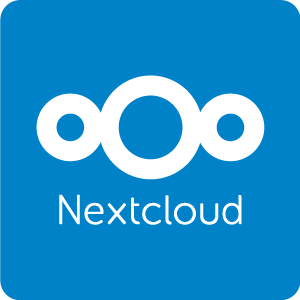

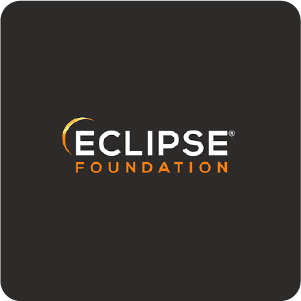
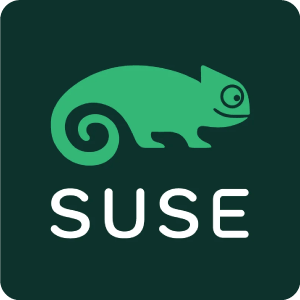
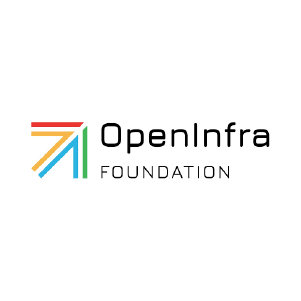
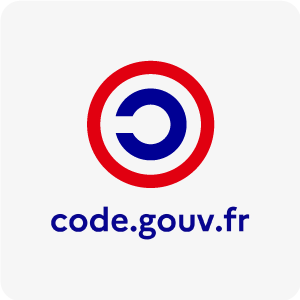
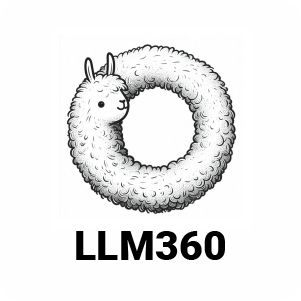

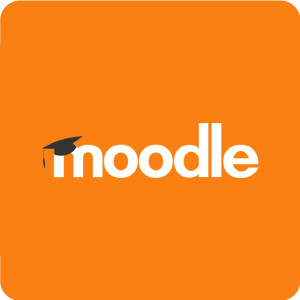

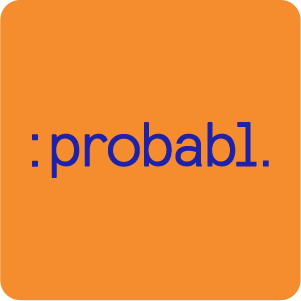

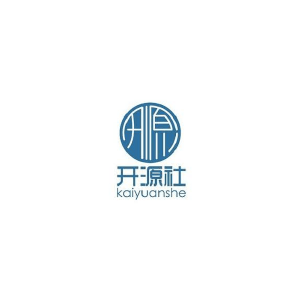
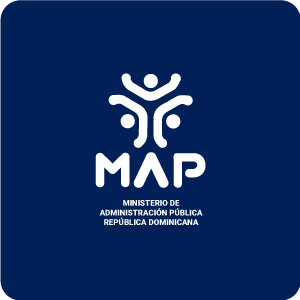
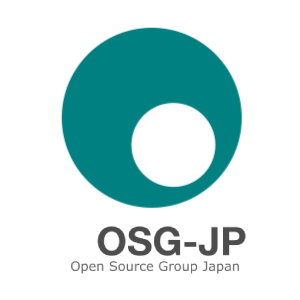
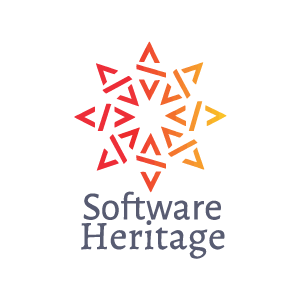
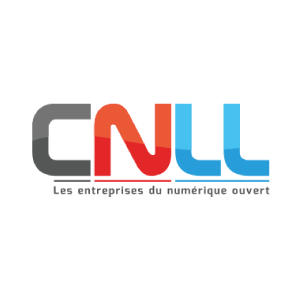
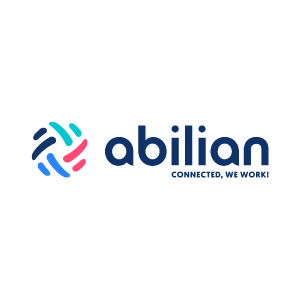
Add your name to the list
Statements of support
Aaron Harper
Issyroo Farms
Abdelghani Achahoud
Innovation for Change – Middle East & North Africa
Akshay Jain
Hindalco Industries Ltd.
I am working within the organisation to create AI which integrates with machines and man from a manufacturing stand points . Having Open source definitions in Manufacturing is of utmost important from the point of worker safety and protections as workers within our org takes decisions based on how AI functions. Open source AI help my team develope and explain model behaviour to end workers and this in turn , based on worker feedbacks our models improve. I want to sponsor and be a part of this initiative so that I can passionately advocate openess to AI algorithms and model behaviour to make manufacturing safer for workers.
Alan Clark
SUSE
SUSE applauds the progress made by the Open Source Initiative and its Open Source AI Definition. The efforts are culminating in a very thorough definition, which is important for the quickly evolving AI landscape and the role of open source within it. We commend the process OSI is utilizing to arrive at the definition and the adherence to the open source methodologies. Clarity and consensus drive collaboration, and we believe this definition will drive open source AI forward.
Alessandro de Oliveira Faria
OpenSUSE
Alex Gastone Mkwizu
SEEDE Group ( XR )
I am a firm believer in building sustainable open-source projects that solve problems and are tailored to the local context, giving them the power to scale and create a global impact. I champion the concept of innovating locally and globally at the same time.
Alexander Wiechert
Elastic2ls
Alexandros Melidis
Open Technologies Alliance – GFOSS
Alyssa Wright
Bloomberg
Bloomberg supports the Open Source Initiative’s initial efforts to begin establishing a clearer definition for open source AI. This timely initiative is crucial as we and others navigate the rapid evolution of artificial intelligence models and increasing pace of adoption of this technology across enterprises. As an open source-first company, we hope that a common framework and definition for open source AI systems, data, code, models and weights will help foster more collaboration, faster innovation, and increased transparency within the AI community. We look forward to working with the OSI and others in the community to shape the future of open source AI for the benefit of all.
Andrea Zanda
ROMBO AI
This is a sensitive matter for me and my organization, as we are working on publishing an AI model for legal purposes as open source.
Andres Guadamuz
University of Sussex
Anivar A Aravind
Foodhub
Anselmo A. Peretto
OPERSOL
I’m proud to support the Open Source AI Definition because it puts transparency and collaboration at the heart of AI development. Open-source principles are key to making sure AI is accessible to everyone and evolves in a way that benefits society as a whole.
Anuradha Weeraman
Verdentra
We applaud and fully endorse the OSI initiative for bringing definition to Open Source AI and for leading the Open Source cause at this pivotal time. As the field evolves rapidly, the network effects of collaboration within the broader technology community as a result of this framework will surely fuel further innovation and advancement.
Ariel Jolo
Nerdearla / Sysarmy
Armando J. Manzueta
Ministry of Public Administration of the Dominican Republic
Arnaud BRAN
Arun Gupta
Open Ecosystem, Intel
Facilitating an Open ecosystem is an important part of our approach at Intel. An open approach to AI can foster greater collaboration across the community, drive innovation and enhance transparency. We applaud OSI’s efforts to expand their definition to include AI models and datasets. OSI’s creation of a first revision of the definition, can help industry continue to evolve and iterate.
Arvind Narayanan
Princeton University
Astor Nummelin Carlberg
OpenForum Europe
Audrey Tang
Taiwan Government
Open Source embodies the spirit of collaborative diversity that drives our digital age forward. By fostering open models and transparent practices, we can accelerate understanding of AI risks, enhance public scrutiny, and lower barriers for responsible innovation. I fully endorse the Open Source AI Definition as a vital step towards this pluralistic future.
Aviya Skowron
Eleuther AI
Transparency is at the core of EleutherAI’s non-profit mission. The Open Source AI Definition is a necessary step towards promoting the benefits of open source principles in the field of AI. We believe that this definition supports the needs of independent machine learning researchers and promotes greater transparency among the largest AI developers.
Ayah Bdeir
Mozilla
Bart de Witte
HIPPO AI Foundation
Bastien Guerry
code.gouv.fr
As a long-time Free Software advocate, I believe that the Open Source AI Definition provides a solid foundation for promoting AI systems that are easier to use, share, and improve.
Camilo Pinto
Diego Portales University
Chalermchai Rodsangiam
Curtis Hayes
Civic Actions
Cyril Blaecke
Dilolabs
Dan Sidsaya
MEST Africa
Daniel Davis
TrustGraph
Daniel Kwan
Kismet XYZ Inc
We’re a group of scientists and entrepreneurs from www.kismetxyzlabs.com who endorse this v1.0 Open Source AI definition.
David Lippert
George Washington University OSPO
David Manset
International Telecommunications Union (ITU)
Davide Sbetti
Würth Phoenix
I strongly believe in open source and open science. As an AI enthusiast, I have no doubt about the benefits such an approach could have to this field.
Diego Kuonen
Statoo Consulting & University of Geneva, Switzerland
Donald Watkins
DGW Enterprises LLC
Dr. Ignatius Ezeani
Lancaster University
Emily Chen
Kaiyuanshe
Kaiyuanshe, as the first member of OSI in China, we support RC1. My personal as individual, I also endorse of OSAID RC1.
Esben Kran
Apart Research
Fabrizio Degni
ENIA – Ente Nazionale per l’Intelligenza Artificiale
Fang Liu
Georgia Tech University
Fernando Eugenio Correa
MercadoLibre
Francisco L. Benítez
FIDESOL (ICT Technological Centre)
Francisco Serradilla
Universidad Politécnica de Madrid
In a hyper-regulated world, I believe that the open dissemination of research and models will multiply the benefits of Artificial Intelligence by allowing it to be applied to problems that its initial developers never imagined.
Frank Karlitschek
NextCloud
Garvit Kothari
Neurobridge Tech
At Neurobridge, we endorse Open Source AI because it fosters transparency, innovation, and collaboration. By giving everyone the freedom to study, modify, and share AI systems, Open Source AI unlocks the full potential of this technology for society. It allows developers, deployers, and end-users alike to build upon and improve AI tools openly, ensuring they are accessible, adaptable, and accountable. We believe this approach paves the way for more inclusive, responsible, and impactful AI that benefits all.
George C. G. Barbosa
Fundação Oswaldo Cruz
Gerardo Lisboa
ESOP – Associação de Empresas de Software Open Source Portuguesas
The Open Source and Free Software ecosystem is a dynamic community of diverse organizations and individuals constantly innovating and improving, and, as such, has wholeheartedly embraced the artificial intelligence (AI) movement with all its potential for good, imprecisions and ethical misgivings, just as it has done with all previous technological advances. Given the indefiniteness and abuse surrounding Ai, it was therefore necessary to reach a clear and concise agreement on the meaning of Open Source in the context of Ai. The community is very grateful to the Open Source Initiative for starting the discussion and helping create a consensus around this definition.
Gilbert Brown
E4 Logics
Henry Wang
Open Network
Open is committed to supporting the Open Source AI Definition (OSAID), which we believe aligns with both our values and those of the broader Open Source Community. OSAID will guide the development of AI systems that are verifiable, transparent, and reproducible—benefiting all, as Open Source Code has done since its inception. A huge thank you to everyone involved in this effort!
Ismael Carrasco
The Open AI concept must fulfill the Open source standard definition, to avoid the missleading use of the “Open” term, used by some very well known companies.
Jake Salomon
Circuit
At Circuit, we believe that open-source AI is fundamental to building a responsible and resilient AI ecosystem. Open access to AI research and technology promotes transparency, collaboration, and innovation by allowing organizations and individuals to audit, understand, and contribute to developments in AI. This openness aligns with our mission to empower users with all of the world’s knowledge, activated to help drive wise decision making. We see open-source AI as essential to fostering diverse perspectives and empowering community-driven progress, ensuring that AI serves the needs of many rather than the few.
Jean-Pierre Lorre
LINAGORA
Joël Gombin
opsci.ai
John Boggero
ITIP
Jonathan Schneider
Moderne, Inc.
The Open Source AI Definition is a pivotal step towards fostering a more transparent, collaborative, and equitable AI landscape. This definition will play a critical role in shaping the future of AI by ensuring that open source remains a cornerstone of its development. We are proud to support this initiative and its commitment to transparency, accessibility, and community-driven progress.
Jörg Wittkewitz
FernUniversität in Hagen
Joshina Ramakrishnan
Weavez Technologies
Juan M Casanueva
SocialTIC
Justin Torre
Helicone AI
Kenza Bouzoubaa
Nabla
At Nabla, we believe in the power of AI to transform healthcare by empowering clinicians and improving patient outcomes. The Open Source AI Definition (OSAID) is a crucial step toward ensuring transparency, flexibility, and trust in AI systems. By setting up clear requirements for system scope and allowed usages, OSI is enabling companies like ours to build responsible, adaptable and better understood tools – ultimately leading to safer, more effective healthcare solutions.
Kevin Harerimana
Carnegie Mellon University Africa
Kristen Ratan
Strategies for Open Science
Kristina Podnar
NativeTrust Consulting, LLC
Since the early 1980s, open source has benefited society, business, and the consumer. By applying the same principles of open access, transparency, and collaboration to AI, we foster a future where innovation knows no limits and the benefits can be shared by all.
Laura Herasme
Liam Esteban Prince
Sopra Steria
Lilly Chen
FSH Tech
Lily Polanco
New.blicio.us
The Open Source AI Definition is a crucial step towards ensuring AI systems are transparent, collaborative, and accountable to the public. By mandating the core freedoms of open source – to use, study, modify, and share AI systems – this definition lays the foundation for a future where AI is developed in the open, with the input and oversight of the broader community.
Liv Marte
Digital Public Goods Alliance
We welcome OSI’s stewardship of the complex process of defining open source AI. The Digital Public Goods Alliance secretariat will build on this foundational work as we update the DPG Standard as it relates to AI as a category of DPGs
Luana Helsinger
Butwhai
Luca Cerina
Eindhoven University of Technology
Luigi Bellio
Akera Software Engineering
Maisa Pires Amaral
Lerian
As a professional in Law and Compliance with a deep interest in AI, I fully support the Open Source AI Definition. I see tremendous potential in making AI accessible through open models, code, and data, fostering innovation, fair competition, and accountability. Aligning AI development with openness and transparency ensures responsible adoption and builds tr
Marco Manca
SCImPULSE Foundation
Mark Collier
Open Infrastructure Foundation
This effort you and OSI team have been driving is really important and I’m a believer that time is becoming of the essence. Inevitably it will need to evolve but putting a stamp on it soon is important. We have to define what open source means in the context of AI models in order to preserve the permissionless innovation aspect that created so much value with open source software licenses. The definition is both pragmatic and challenging, and is an excellent first step in a fast-moving area.
Martin Dougiamas
Moodle
Masao Dahlgren
Center for Strategic and International Studies
McKenzie Lloyd-Smith
MindPort Inc.
We applaud OSI’s thoughtful approach to defining Open Source AI, which preserves the core freedoms of open source while addressing the unique complexities of AI systems. At MindPort, we recognize the importance of a clear, shared and agreed upon definition that promotes transparency, autonomy, and improvement. This is essential for advancing the field through meaningful research, innovation and collaboration. We believe this definition will serve as a crucial foundation for fostering an ecosystem where AI can be developed, scrutinized, and improved upon by the broader community, ultimately leading to more robust and trustworthy AI systems.
Merlijn Sebrechts
Ghent University – imec
Mike Milinkovich
Eclipse Foundation
Moise Kameni
Hydro-Québec
Nadia Jiang
KAIYUANSHE
Nathan Clark
Fidelity Investments
Nguyen Hong Quang
Vietnam Free and Open Source Software Association
Nina Shamsi
Northeastern University
Odyssee Ndayisaba
Continuity Group, Ltd
Oscar Mullin
Mercado Libre
Open Source generative AI models are one of the keys to the advancement of the field. By enabling a community of developers and researchers to collaborate and evolve these models in a responsible way, we can greatly benefit a wide range of applications.
Paola Masuzzo
onData
onData supports and endorses the OSI’s Open Source AI definition, which is timely and extremely important for a number of reasons. The addresses key challenges related to open source AI, such as guidelines for sharing code, data, and ensuring accessibility to all. The definition aligns with onData’s vision of promoting true open knowledge and fostering communities where data and AI are responsibly and openly shared to ensure their benefits are accessible to all.
Percy Liang
Director of Center for Research on Foundation Models, Stanford University
Coming up with the proper open-source definition is challenging given restrictions on data, but I’m glad to see that the OSI v1.0 definition requires at least that the complete code for data processing (the primary driver of model quality) be open-source. The devil is in the details, so I’m sure we’ll have more to say once we have concrete examples of people trying to apply this Definition to their models.
Peter Šantavý
Ecclesia.Sk, Christ-Net.Sk
Phillip Rhodes
Fogbeam Labs
Fogbeam Labs endorse the Open Source AI Definition as the current best and most useful definition of “Open Source AI”. And to the extent that it may be less than perfect, it will have the opportunity to evolve as needed in the years to come.
Prahil Amalraj
Prathyusha engineering college
Pratul Gupta
KogentAI
Qianqian Shi
Tsinghua University
Rahmat Akintola
Women In Machine Learning and Data Science – Accra
Rasim Sen
OASIS SOFTWARE TECHNOLOGY LTD
It was a great experience working with the Open AI team and contributing to this important initiative. We look forward to seeing the release version and witnessing the impact it will have on the AI community.
Rémy Wehrung
IA_AUT_ECO
The emergence of AI in our lives is just as important as the emergence of UNIX BSD, GNU/Linux and the Internet. In this sense, companies and individual creators must be able to create and protect their work openly, this definition complements the European AI Act, for the benefit of all.
Rhonnell Hari
Robert Freund
Rogerio Coutinho
Podium
Ryan TAO
Grandall Law Firm
Sam Klein
Public AI Network
Sayash Kapoor
Princeton University
Sayeed Choudhury
Carnegie Mellon University
Scott Edmunds
GigaScience Press
Running journals for Open Science we publish research data, software and increasingly AI-based research combining both. Insisting on open licensing for everything we publish, what were grey areas are clearer now thanks to this extremely useful definition of Open Source AI.
Seo-Young Isabelle Hwang
Samsung
During the OSAID process, I had the chance to collaborate with members from various continents and time zones. It was an interesting experience as sometimes I found myself waking up at 2 am in my pajamas for a Zoom call! 😉 Through both synchronous discussions within our working group (WG) meetings and asynchronous conversations on the web forum, I gained valuable insights into diverse collaboration methods.
Seth Dobrin
Qantm AI
This is a required step as many organizations claim to put forward open source tools when they are only partially open source at best and disingenuously open source in some cases for mere marketing when you look at what has been provided and the license terms.
Shuji Sado
Open Source Group Japan
The release of the RC version of the Open Source AI Definition will be the most significant milestone for OSI and the community since the release of the Open Source Definition in February 1998. This definition marks our transition from an era where Open Source was primarily focused on software programs to one that now includes data. OSI will face the challenging task of addressing various rights that are not covered by copyright-based intellectual property, and a very long and endless road awaits. However, OSI and its community will surely overcome this with strength and determination. We will continue to support the future of Open Source by dedicating ourselves to the success of OSI and OSAID.
Stefane Fermigier
CNLL / Abilian SAS
The CNLL (https://cnll.fr/) has decided, after an unanimous decision of its board today, to endorse the OSAID. / Abilian, an open source company in France, with products and services that leverage ML and AI, including LLMs, endorses the OSAID.
Stefano Zacchiroli
Software Heritage
Software Heritage is committed to preserving and making accessible the invaluable human knowledge embedded in software source code. We believe that AI systems trained on this vast repository should be freely available to all, with as little restrictions as possible. Users of OSAID-compliant AI systems trained on Software Heritage data will enjoy full transparency on how they were built. By endorsing OSAID, we aim to promote transparency and reproducibility within the AI industry. We’ve been involved and vocal in shaping OSAID 1.0 and look forward to collaborating on further iterations of it, as the practice of developing AI systems from open data sets evolves.
Stella Biderman
EleutherAI Institute
Transparency is at the core of EleutherAI’s non-profit mission. The Open Source AI Definition is a necessary step towards promoting the benefits of open source principles in the field of AI. We believe that this definition supports the needs of independent machine learning researchers and promotes greater transparency among the largest AI developers.
Ted Liu
KAIYUANSHE
Tetsuya Kitahata
Tlamelo Makati
Women In Machine Learning and Data Science – Gaborone
Thom Vaughan
CommonCrawl
The Common Crawl Foundation fully supports the Open Source AI Definition as a crucial step in setting clear standards for open and transparent AI development. This definition will help ensure AI develops responsibly, staying open and accessible to everyone.
Uday Kalyan Nuthalapati
University of North Texas
Vid Kersic
University of Maribor
Victor Lu
(unaffiliated consultant)
Victor Westmann
2work Canada
Walter Heck
Helixiora
Having spent a lot of time supporting and promoting open source software over the last 20 years I am very happy that there is now an official definition of what Open Source means in an AI context. I fully endorse this definition and hope it will soon lead to a better climate where companies can’t just claim they have Open Source AI, they actually have to comply with this standard.
Willy Salazar
Our organization fully supports the Open Source AI Definition as a critical framework for enhancing transparency and ethical development across the AI landscape. We recognize the Open Source Initiative’s important work in establishing guidelines that promote collaborative innovation and set a high standard for responsible AI. By endorsing this definition, we reaffirm our commitment to open access and advancing AI practices that benefit the entire community.
Xihua Duan
PEOPLE PROFILERS
Yann Lechelle
Probabl.AI
I endorse! We need common vocabulary to define what is open is what isn’t. This is a solid framework that doesn’t give a blank check to those who are lightly claiming to be providing open source AI (even if they desperately wish to be qualified as such), and reversely, the framework is open to initiatives that introduce gradients of open source on the various components that make an AI system, and recognizes efforts in opening-up all or some of the components. After all, “AI” is a derivative of software, complete with data, code and artefacts. There is no reason a derivative system should be classified under the foundational definition of “open source” and at the same time, AI systems are becoming so powerful at capturing intelligence away from humans that we need to qualify their degree of openness. Hats off to all involved for producing such an important piece of work.
YaoLIANG
KAIYUANSHE
Yilma Markos Lerbo
WCU
Zhengzhong (Hector) Liu
LLM360
LLM360 finds that OSI’s Open Source AI definition is a meaningful, reasonable, and holistic standard which will have positive reverberations throughout the community. The definition clarifies the unique challenges surrounding open source AI including the expectations for disseminating code, data, and accessibility requirements. This definition propels the open source ecosystem and aligns with LLM360’s mission for community owned AI. Our team is thrilled and excited to fully support OSI’s efforts on advancing the Open Source AI definition.
